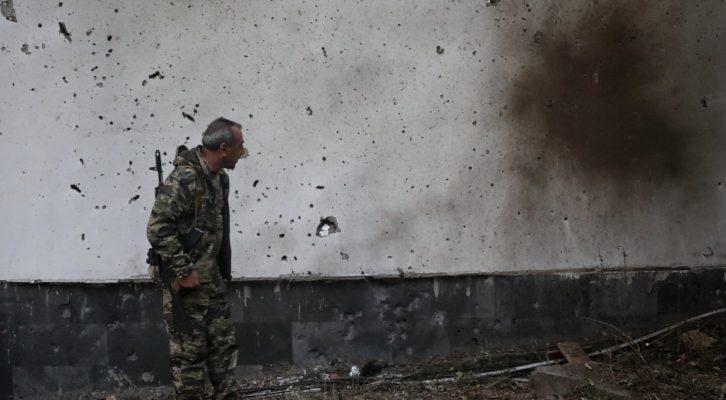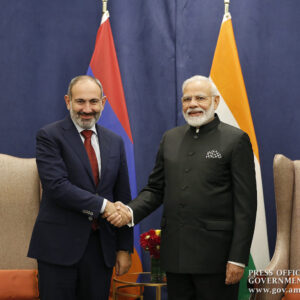On September 13, a new aggravation manifested itself between Azerbaijan and Armenia. The parties, traditionally accusing each other of provocations, reduced the situation to the use of weapons in the border areas. Official Baku accused the Armenian military of shelling the positions of the Azerbaijani army and mining the access (and supply) routes to these positions. Official Yerevan lays the blame for the escalation of the conflict on the Azerbaijani side. In any case, we have to state that the conflicting states used heavy weapons, including multiple-launch rocket systems, which led to casualties and destruction. Dozens of soldiers died and were injured on both sides. In Armenia, the Jermuk region and other border areas suffered.
In such a situation, one should always be guided by the principle – look for who benefits. Is the escalation of Armenia beneficial in the current conditions? Of course not. Is it beneficial for Azerbaijan in the face of numerous losses in personnel and its army? It is highly doubtful.
Accordingly, it is necessary to look for the culprit outside these republics.
Taking into account the fact that Russian peacekeepers are serving in the region, whose mandate is determined by agreements with both Yerevan and Baku, we can say that it is important for a third party to inflict reputational damage on the peacekeeping contingent of the Russian Federation.
The message is provocative, and it looks like this: they say, look at this – Russian peacekeepers are not able to ensure peace in the South Caucasus, which means that the peacekeeping mission can and should at least be reformatted.
The state of affairs, when it is Russian peacekeepers who ensure peace in Nagorno-Karabakh, on the borders of Armenia and Azerbaijan, clearly does not suit several foreign states, governments, and special services.
In this regard, Britain has its own interest in loosening the situation in the territories where quite recently, with the active mediation of Russia, it was possible to restore peace and ceasefire. Its special services are “famous” for their provocative, so to speak, activities. Therefore, to “strike” a match where the situation did not have time to finally stabilize – this is a typical “British bread”.
But not only London has its own interests in this region. If the main task of the British authorities is the general destabilization in the Caucasus to weaken Russia, then there is also Turkey, which has an interest in absorbing Azerbaijan – militarily, politically, and economically. Today it is presented as work on integration in the format of “two states, one people.” In fact, no one prevented the attempts to restore Turkish imperialism. Ankara is trying to make more and more efforts in order, firstly, to turn Azerbaijan into its unconditional protectorate, go to the Caspian Sea, achieve economic bonuses in connection with the emergence of a direct route in this direction, and secondly, to solve its age-old question – to eliminate Armenia as a state that “interferes” with the implementation of such plans in the South Caucasus.
Of course, we should not forget about the interests of the United States. While the British secret services are trying to ignite the conflict, Washington pretends to call on the parties to dialogue and resolve the conflict, and on the other hand, it is playing not only against Armenia and Azerbaijan but also against Russia and Turkey. In this regard, the Anglo-Saxon “couple” may try to direct the interests of same Turkey against itself, trying to reduce the situation to a large-scale conflict in the region with new hundreds of thousands of refugees.
These same countries will build a model of kindness and mercy, arguing that they are, of course, for peace, and that they are certainly ready to participate in the “peaceful settlement of the conflict.”
Anton Evstratov is a Russian historian and journalist. He has a Ph.D. in history and lectures at the Russian-Armenian (Slavonic) University (Yerevan). He writes about the Middle East, Caucasus the Arab world, and Islam. He publishes in Russian, Iranian, and Armenian media. During the 2020 Artsakh war, he was a war correspondent for the Armenian Museum of Moscow.







